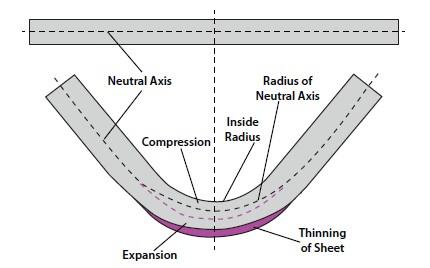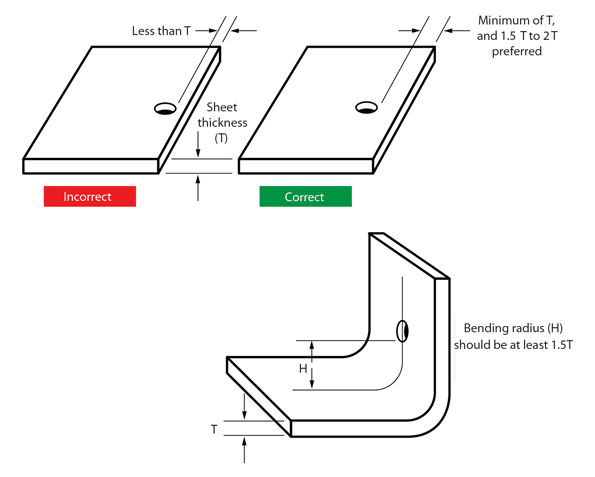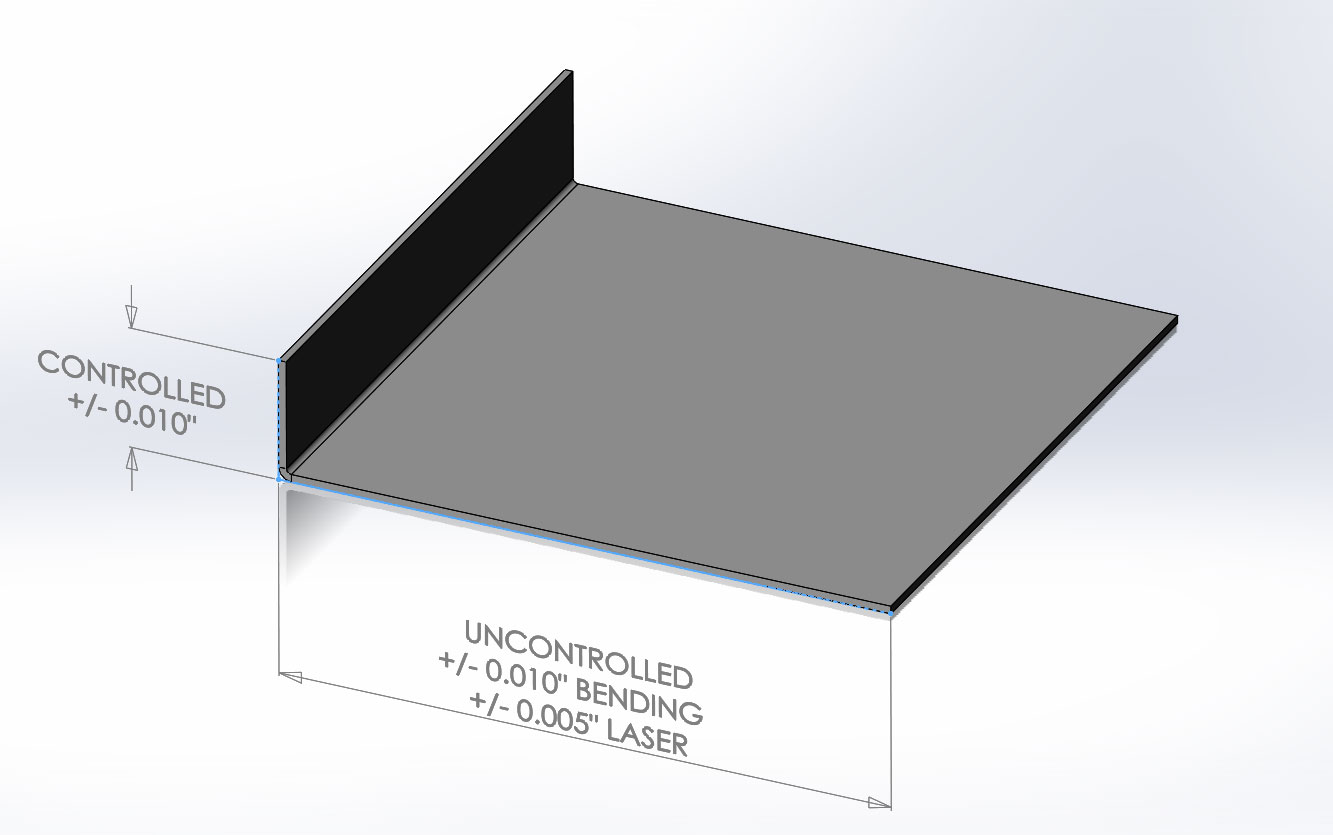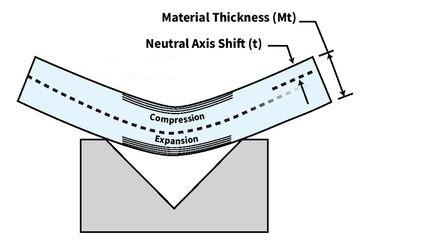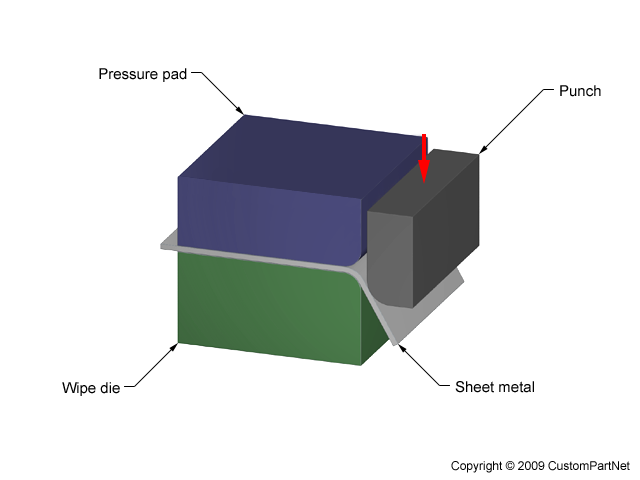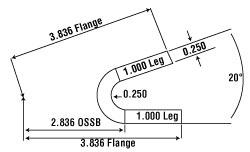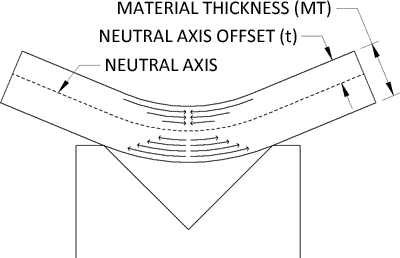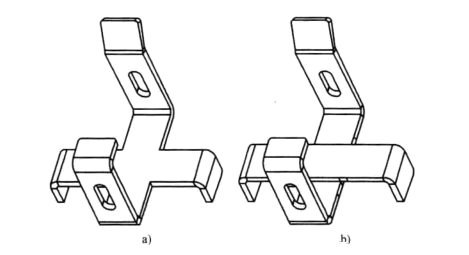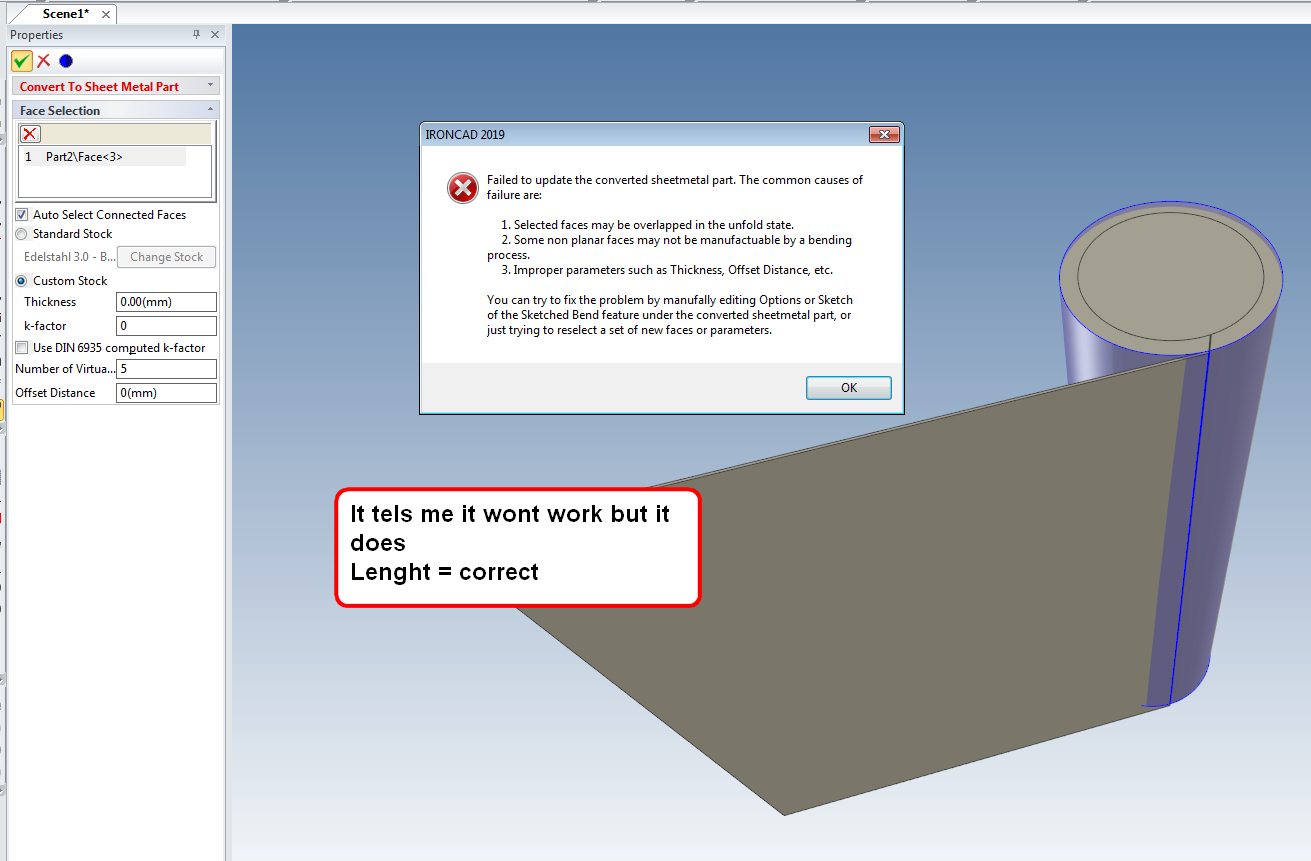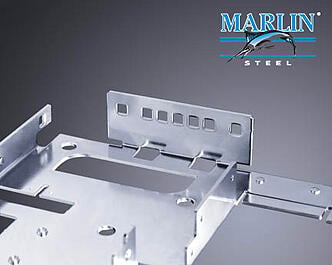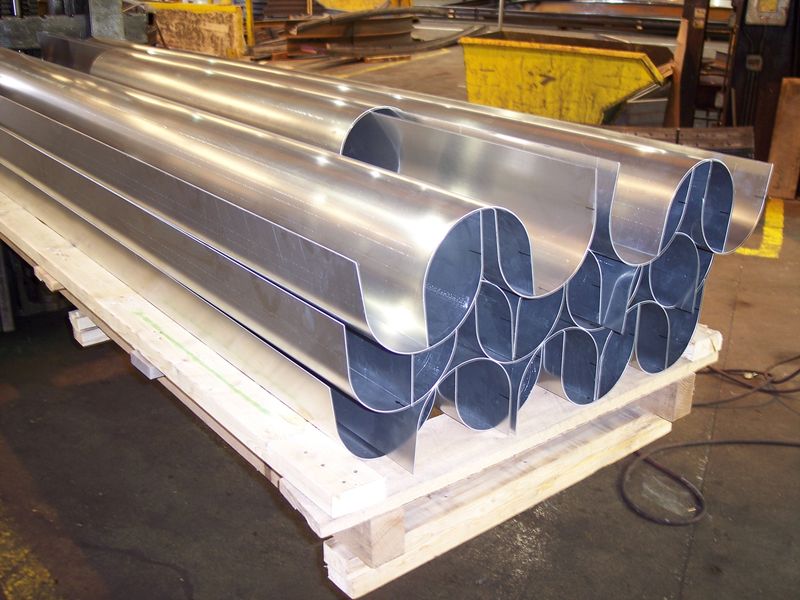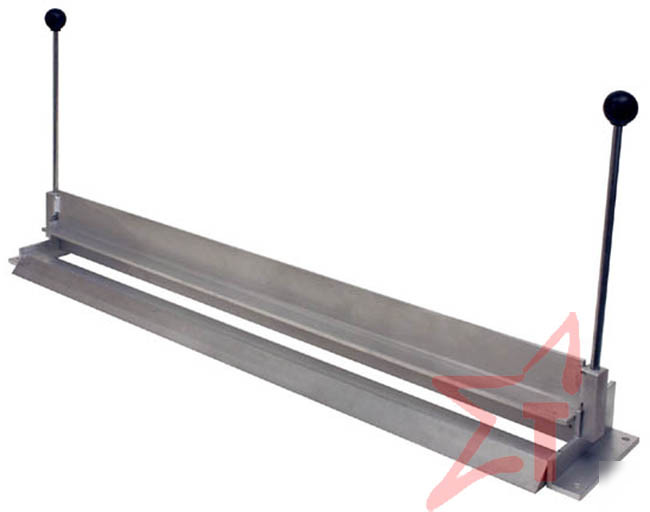Minimum Bend Radius Sheet Metal Aluminum Metric

When the sheet metal is put through the process of bending the metal around the bend is deformed and stretched.
Minimum bend radius sheet metal aluminum metric. The minimum inside bend radius is even larger when bending with the grain. The tool can calculate the required bending force for bending aluminum stainless steel mild steel and weldox or strenx high strength steels. Recommended minimum bend radii for steel and aluminum. Per the aluminum association inc.
Minimum sheet metal flange bend length is required to avoid cracks in the bending area. The tables below show bend radii and minimum bend sizes for materials and tooling combinations stocked by protocase. For example 6061 t6 aluminum is very difficult to bend. It is most economical to use a single bend radius throughout the design but if necessary you can utilize multiple radii.
It is possible to choose other bends if you require but additional lead time and tooling charges may apply. Radii for various thicknesses expressed in terms of thickness t. Minimum hole diameter guidelines. We go beyond the general rules of sheet metal bending as our customers want tight bend radii for sheet metal parts.
This tool allows you to determine tonnage internal radius v die opening and minimum flange you just have to insert the characteristics of the sheet metal to be bent. In steel between 0 5 and 0 8 in. Sheet metal bend radii if these guidelines are not followed more research and or some form of analysis may be requried. Since commercial sheet metal bending can be done with less concern for stresses caused during forming operation the radius can be near zero for thin sheet metal.
The bend radii listed are standard minimum if manufacturing for aircraft and aerospace applications. Minimum sheet metal flange bend length 3 x sheet thickness bend radius. Table 1 preferred recommended 90 degree bend radii for various sheet metals. 3003 h14 is extremely ductile.
Bend radii minimum bend sizes. The minimum bend radius data shown in these charts is measured to the inside of the bend. It shall be equal to three times of sheet thickness plus bend radius. Thick grade 350 and 400 may have a minimum bend radius of 2 5 times the material thickness when transverse bending while longitudinal bending may require a minimum bend radius that s 3 75 times the material thickness see figure 1.
Aluminum where necessary 5052 h32 may be bent to 1t and 6061 t6 to 1 1 2t. As this happens you gain a small amount of total length in your part. It requires an inside bend radius of at least 6x the material thickness. Use this document to choose values that are both manufacturable and meet your needs.
Discover all our calculation tools in the calculators section of the top menu. Brittle metal such as aluminum generally requires a larger bend radius than ductile material like cold rolled steel.

